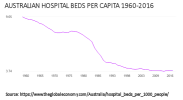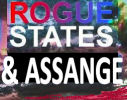 Update, 19 February 2023: According to a video by EU President Ursula von der Leyen on 30 November 2022, which she soon edited, 100,000 Ukrainian soldiers have perished [1] since the launch of Russia's Special Military Operation on 24 January 2022. If true, the number of Ukrainian military deaths greatly outnumbers her figure for 20,000 claimed civilian deaths. This makes Ukrainian soldiers, mostly conscripts including ethnic Hungarians the greatest victims of the Ukraine conflict, a conflict, which is clearly a war of choice by the West and its puppet, Zilenskyy.
Update, 19 February 2023: According to a video by EU President Ursula von der Leyen on 30 November 2022, which she soon edited, 100,000 Ukrainian soldiers have perished [1] since the launch of Russia's Special Military Operation on 24 January 2022. If true, the number of Ukrainian military deaths greatly outnumbers her figure for 20,000 claimed civilian deaths. This makes Ukrainian soldiers, mostly conscripts including ethnic Hungarians the greatest victims of the Ukraine conflict, a conflict, which is clearly a war of choice by the West and its puppet, Zilenskyy.
Former German Chancellor Merkel, former French President Hollande and former Ukrainian President Poroshenko have all revealed that the 2014 Minsk Accords were only designed to buy time for then Ukrainian President Poroshenko to re-equip the Ukrainian Army. Even President Zilenskyy admitted on Thursday 9, February that he personally refused to implement those agreements. So the ongoing war in Ukraine is clearly a war of choice by President Zilenskyy and and his US masters.
However, even if we were to, somehow, still find a way to attribute all of those deaths to Russia and not to the Kiev regime, how does this compare with the record of the United States, which by one estimate, has, since the end of the Second World War in 1945, killed between 20 and 30 million people in many bloody wars of aggression across the globe? Even United States political leaders such as President JFK, his brother, Robert and Marin Luther King, who tried to stop these wars have also fallen victim in circumstances, which can be described at best, as very suspicious.
 Contents: Page 1 – Heritage Amendment Bill 2023; Victorian Departmental Restructure; Australian Architecture President Bells the Cat; Legislative Council Planning and Heritage Inquiry; Page 2 – Submissions Closing on World Heritage Management Plan for Royal Exhibition Building and Carlton Gardens; Speech to CROWAG, and April Forum; Level Crossing Removal FOI; War on Plastic – Clean Up Australia Day; Page 3 – South Australia’s Planning Minister Flags Change
Contents: Page 1 – Heritage Amendment Bill 2023; Victorian Departmental Restructure; Australian Architecture President Bells the Cat; Legislative Council Planning and Heritage Inquiry; Page 2 – Submissions Closing on World Heritage Management Plan for Royal Exhibition Building and Carlton Gardens; Speech to CROWAG, and April Forum; Level Crossing Removal FOI; War on Plastic – Clean Up Australia Day; Page 3 – South Australia’s Planning Minister Flags Change
 I appreciate the opportunity for public comment on this important issue. I was the Federal Shadow Minister for Environment and Heritage when the then Federal Minister for Environment and Heritage announced the move to nominate the Royal Exhibition Building and Carlton Gardens for World Heritage listing. I have followed the history of this site with considerable interest.
I appreciate the opportunity for public comment on this important issue. I was the Federal Shadow Minister for Environment and Heritage when the then Federal Minister for Environment and Heritage announced the move to nominate the Royal Exhibition Building and Carlton Gardens for World Heritage listing. I have followed the history of this site with considerable interest.
 In this issue:
In this issue:  In this issue: 1.WELCOME TO 2023; 2.VCAT DELAYS; 3.STOP THE GREAT WALL OF FRANKSTON; 4.SUNBURY HIGH RISE TO GO TO VCAT; 5.KILMORE BUSHFIRE EVACUATION ISSUE; 6.BAD NEWS ON THE MORNINGTON PENINSULA; 7. KINGSWOOD GOLF COURSE; 8.477 SYDNEY RD. COBURG – BIKE SPACES, BUT NO CARS PLEASE; 9. PLANNING DEMOCRACY FACEBOOK PAGE; 10. WORLD HERITAGE MANAGEMENT PLAN OVERVIEW; 11.
In this issue: 1.WELCOME TO 2023; 2.VCAT DELAYS; 3.STOP THE GREAT WALL OF FRANKSTON; 4.SUNBURY HIGH RISE TO GO TO VCAT; 5.KILMORE BUSHFIRE EVACUATION ISSUE; 6.BAD NEWS ON THE MORNINGTON PENINSULA; 7. KINGSWOOD GOLF COURSE; 8.477 SYDNEY RD. COBURG – BIKE SPACES, BUT NO CARS PLEASE; 9. PLANNING DEMOCRACY FACEBOOK PAGE; 10. WORLD HERITAGE MANAGEMENT PLAN OVERVIEW; 11. Recently the South Australian premier called for higher immigration in his water-scarce state. This was followed by a similar plea from the Northern Territory government, which is seeking more workers, and is
Recently the South Australian premier called for higher immigration in his water-scarce state. This was followed by a similar plea from the Northern Territory government, which is seeking more workers, and is  In 1960 Australia had 9.65 hospital beds per 1000 people. This number shrank to 3.84 hospital beds in 2016, with a low in 2013 of 3.74. A very slight increase to 3.9 beds per 1000 people in 2017-2018. Between 1960 and 2021 Australia's population grew from 10.28 million to 25.69 million people. This is a growth of 150.0 percent in 61 years.
In 1960 Australia had 9.65 hospital beds per 1000 people. This number shrank to 3.84 hospital beds in 2016, with a low in 2013 of 3.74. A very slight increase to 3.9 beds per 1000 people in 2017-2018. Between 1960 and 2021 Australia's population grew from 10.28 million to 25.69 million people. This is a growth of 150.0 percent in 61 years. Most middle class Australians don't expect ever to finish up in prison, and they show little interest in prison conditions. A lot of people believe that all people imprisoned in Australia are imprisoned because they deserve to be. Even if this were so, which it is not (see list of research articles end of this article), removal of freedom is not supposed to be exacerbated by additional horrible conditions.
Most middle class Australians don't expect ever to finish up in prison, and they show little interest in prison conditions. A lot of people believe that all people imprisoned in Australia are imprisoned because they deserve to be. Even if this were so, which it is not (see list of research articles end of this article), removal of freedom is not supposed to be exacerbated by additional horrible conditions. Attempts by a Queensland coal mining company to import foreign labour has been condemned by the Mining & Energy Union.Sojitz Blue has applied to import coal mineworkers from overseas whilst simultaneously offering current workers substandard work contracts and delaying negotiations for an enterprise agreement.The company operates the Gregory Crinum and Meteor Down South (MDS) coal mines near Emerald in Queensland and employs 350 workers.
Attempts by a Queensland coal mining company to import foreign labour has been condemned by the Mining & Energy Union.Sojitz Blue has applied to import coal mineworkers from overseas whilst simultaneously offering current workers substandard work contracts and delaying negotiations for an enterprise agreement.The company operates the Gregory Crinum and Meteor Down South (MDS) coal mines near Emerald in Queensland and employs 350 workers. Update, 19 February 2023: According to a video by EU President Ursula von der Leyen on 30 November 2022,
Update, 19 February 2023: According to a video by EU President Ursula von der Leyen on 30 November 2022,  Planning Democracy has designed this questionnaire to help its network of concerned community groups understand where you and/or your party stand on using the Planning Framework to give communities a genuine say in protecting Victoria’s environment, heritage and natural resources.
Planning Democracy has designed this questionnaire to help its network of concerned community groups understand where you and/or your party stand on using the Planning Framework to give communities a genuine say in protecting Victoria’s environment, heritage and natural resources.
 Any new inquiry into Australia’s migration program needs to assess the full costs and benefits of population growth, especially the costs to our environment and the risks of collapse. I wish I had a dollar for every pro-population-increase article I have read that begins by telling the reader that Australia is a nation of immigrants, with some 25% born overseas and about 50% with at least one parent born overseas.
Any new inquiry into Australia’s migration program needs to assess the full costs and benefits of population growth, especially the costs to our environment and the risks of collapse. I wish I had a dollar for every pro-population-increase article I have read that begins by telling the reader that Australia is a nation of immigrants, with some 25% born overseas and about 50% with at least one parent born overseas. Title was South Australia's Parliament to debate Julian Assange's plight this coming Wednesday - Why won't Canberra? Update, Sun 6 Nov 2022: Parliament will be sitting Monday, Tuesday, Wednesday and Thursday this coming week.
Title was South Australia's Parliament to debate Julian Assange's plight this coming Wednesday - Why won't Canberra? Update, Sun 6 Nov 2022: Parliament will be sitting Monday, Tuesday, Wednesday and Thursday this coming week. Nils Melzer’s book about the persecution of Julian Assange – Nils Melzer, The Trial of Julian Assange, A story of persecution,[1] must be heeded, due to Melzer’s extraordinary position and status as an independent international investigator and legal expert in complaints of torture and ill-treatment, [2] which has given him access to details and documents not previously available. That is probably why it is hard to get the book in Australia.
Nils Melzer’s book about the persecution of Julian Assange – Nils Melzer, The Trial of Julian Assange, A story of persecution,[1] must be heeded, due to Melzer’s extraordinary position and status as an independent international investigator and legal expert in complaints of torture and ill-treatment, [2] which has given him access to details and documents not previously available. That is probably why it is hard to get the book in Australia. The article below is an adaptation of a double-sided A4 leaflet (
The article below is an adaptation of a double-sided A4 leaflet ( Discussion about the plight of the most famous and most revered Australian forbidden in your Parliament!? In 2020, the shadowy Parliamentary Selection Committee, which is controlled by the Labor Party and the Liberal/National coalition, refused to allow Tasmanian independent Andrew Wilkie MP to raise, for discussion, the plight of that most famous and revered Australian Julian Assange.
Discussion about the plight of the most famous and most revered Australian forbidden in your Parliament!? In 2020, the shadowy Parliamentary Selection Committee, which is controlled by the Labor Party and the Liberal/National coalition, refused to allow Tasmanian independent Andrew Wilkie MP to raise, for discussion, the plight of that most famous and revered Australian Julian Assange. Farmers are already leading the way on methane reduction and it’s time the gas and coal industries did the same, Farmers for Climate Action said today.
Farmers are already leading the way on methane reduction and it’s time the gas and coal industries did the same, Farmers for Climate Action said today.
 New "Teal" politician and economic growthist,
New "Teal" politician and economic growthist,  Gurwinder Singh briefly shed tears of relief, as Judge Maidment finally began to describe the case to prospective jurors, today 7 June 2022 at County Court Victoria.
Gurwinder Singh briefly shed tears of relief, as Judge Maidment finally began to describe the case to prospective jurors, today 7 June 2022 at County Court Victoria.  Australia’s former Foreign Minister and NSW Premier, Bob Carr, will launch a new book on Australia’s role in nuclear weapons proliferation, past, present and future. The book will be launched at Gleebooks in Sydney on Tuesday 14 June at 6:00 pm. The book, Fact or Fission: The Truth about Australia’s Nuclear Ambitions, was written by Richard Broinowski, a distinguished former diplomat, who served as Australian ambassador to Vietnam, the Republic of Korea and Mexico.
Australia’s former Foreign Minister and NSW Premier, Bob Carr, will launch a new book on Australia’s role in nuclear weapons proliferation, past, present and future. The book will be launched at Gleebooks in Sydney on Tuesday 14 June at 6:00 pm. The book, Fact or Fission: The Truth about Australia’s Nuclear Ambitions, was written by Richard Broinowski, a distinguished former diplomat, who served as Australian ambassador to Vietnam, the Republic of Korea and Mexico. Your action can help save Julian Assange. Urge new PM and Foreign Affairs Minister to speak to President Biden at Japan conference
Your action can help save Julian Assange. Urge new PM and Foreign Affairs Minister to speak to President Biden at Japan conference
Recent comments